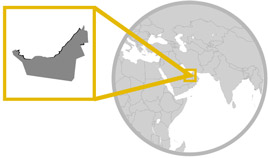A child requires no additional measures to be taken to enter the country that a regular adult would not need to undertake.
A maximum of two animals may be imported into the country completely free of charge, beyond that, all animals are treated as commercial and so various import procedures apply and a Control Document (SPS) issued by the General Directorate of Protection of Control (GDPC) will be required.
All animals must have their own individual health certifications issued by an accredited veterinarian that must have examined the animal no more than 96 hours before travel. All certifications must declare the animal to be healthy without sign of contagious/infection disease. It’s recommended, but not enforced, that all animals have a standard ISO-compatible microchip for identification. The following documents are also required and must be stamped by the Agriculture Department of the country of origin:

